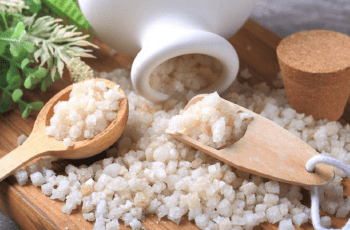Donating plasma is a safe and essential way to help others in need. Many women wonder if they can donate plasma while on their period. The answer is yes, you can absolutely donate plasma while menstruating. Menstruation does not impact plasma itself or donation eligibility. As long as you meet all other donor criteria, donating on your period is perfectly fine.
Overview of Plasma Donation
Plasma donation plays a crucial role in saving lives and improving healthcare. Plasma, which makes up about 55% of total blood volume, contains vital proteins that are used to create medications for various medical conditions. The process of plasma donation involves extracting plasma from the blood and returning the red blood cells and platelets back to the donor. This allows for the continuous production of life-saving therapies for individuals with immune deficiencies, bleeding disorders, and burn victims.
The importance of plasma donation cannot be overstated. By donating plasma, you are providing essential resources that contribute to the development of crucial medical treatments. The plasma collected is used to manufacture therapies that help improve the quality of life for countless patients. Your donation can make a significant impact and contribute to the well-being of individuals in need.
The plasma donation process is safe and well-regulated. Plasma centers utilize sterile, single-use equipment to ensure the cleanliness and safety of the donation process. The entire procedure usually takes around 1-2 hours, and donors can donate plasma up to twice per week. It’s a selfless act that allows you to give back to the community and help those who rely on plasma-derived medicines. Consider donating plasma and become a part of this life-saving process.
Donating Plasma on Your Period: Eligibility and Safety
Many women have questions about donating plasma while on their period. The good news is that menstruation does not impact plasma donation eligibility. You can safely donate plasma during your menstrual cycle as long as you meet all other donor criteria. While period blood does contain some plasma, the act of donating does not affect plasma levels or your ability to donate.
Plasma donation centers take precautions to ensure a safe and hygienic process. They use sterile collection equipment that eliminates the risk of contamination. This means that donating plasma on your period is just as safe as donating at any other time of the month. However, it’s important to be aware of the general eligibility requirements for plasma donation, such as age, weight, and good general health.
It’s crucial to be transparent about your health history when donating plasma. Certain conditions and restrictions may disqualify individuals from donating, such as pregnancy, bleeding disorders, HIV/AIDS, or recent surgeries. Being open and honest with the plasma center staff helps ensure the safety and effectiveness of the plasma supply. They can provide you with specific guidance based on your individual circumstances.

If you have any concerns about donating while on your period, it’s always best to consult with the plasma center directly. They can address any specific questions or provide additional information to put your mind at ease. Donating plasma on your period can still make a significant impact and help save lives, so don’t hesitate to contribute if you’re eligible.
Preparing to Donate Plasma on Your Period
If you plan to donate plasma while on your period, there are a few things you can do to make the process more comfortable. First and foremost, it’s recommended to wear a pad instead of a tampon during your donation. Tampons are not allowed during the donation process due to the risk of dislodging or causing discomfort. Wearing a pad provides a safe and convenient option to manage your menstrual flow.
Additionally, it’s a good idea to bring extra sanitary supplies with you to the donation center. This includes pads, wipes, and clean underwear. Having these items readily available ensures that you can maintain your hygiene and feel fresh throughout the donation process.
To help alleviate any discomfort and cramping, you may consider taking an over-the-counter pain medication prior to your donation. This can help minimize any period-related symptoms and make the process more tolerable. However, it’s always important to consult with your healthcare provider before taking any medication.
Staying hydrated is crucial, especially when donating plasma. It’s recommended to drink extra fluids before your donation appointment to prevent lightheadedness or feeling faint. Proper hydration not only helps you feel better during the donation but also supports your overall well-being.
Avoiding any potential mishaps or leakage is another consideration when donating plasma on your period. It’s advisable to wear dark, loose-fitting pants or a dress to the donation center. This will help you feel more at ease and ensure that any accidental leaks won’t be noticeable.
Lastly, if you typically use menstrual cups, it’s important to remove them before your plasma donation. Menstrual cups are not compatible with the donation process and should be removed to ensure a smooth and safe procedure.
After donating plasma, it’s normal to experience some extra vaginal discharge and bleeding. This is a natural response to the donation process and should subside within a day or two. It’s recommended to change your feminine products after donating and have extra supplies easily accessible in your bag.
By following these tips, you can confidently donate plasma while on your period and help make a difference in the lives of others.
Conclusion
Donating plasma is a selfless act that can help save lives. As a woman, you may wonder if you can donate plasma while on your period. The answer is yes, you can absolutely donate plasma during menstruation. Menstruation does not impact plasma donation eligibility, and period blood loss does not affect plasma levels. Plasma centers use sterile collection equipment to ensure a safe and hygienic process, so you can donate plasma safely without any concerns.
It’s important to understand the eligibility requirements for plasma donation, including age, weight, and general health. Additionally, it is crucial to be honest about your health history when donating plasma. By meeting these criteria and following the necessary preparations, you can make a significant impact and help provide lifesaving medical treatments for those in need.
Whether you are considering donating plasma on your period or at any other time, consulting with the plasma center is always recommended. They can provide guidance, address any concerns, and ensure a smooth and comfortable donation experience. Donating plasma is a valuable contribution that you can make to the healthcare system, and your generosity can truly make a difference.
FAQ
Can I donate plasma while on my period?
Yes, you can absolutely donate plasma while menstruating. Menstruation does not impact plasma itself or donation eligibility. As long as you meet all other donor criteria, donating on your period is perfectly fine.
Does losing period blood affect plasma levels or donation eligibility?
No, losing period blood does not affect plasma levels or donation eligibility. Period blood contains some plasma, but it does not impact the amount available for donation.
Is it safe to donate plasma while on my period?
Yes, donating plasma while on your period is safe. Plasma donation centers use sterile collection equipment to prevent contamination, ensuring a safe and hygienic process.
What are the general eligibility requirements for plasma donation?
The general eligibility requirements for plasma donation include age, weight, and good general health. However, there may be specific conditions or restrictions that could disqualify individuals from donating plasma, such as pregnancy, bleeding disorders, HIV/AIDS, or recent surgeries.
Can I wear a tampon during plasma donation while on my period?
No, tampons are not allowed during plasma donation. It is recommended to wear a pad instead, and bring extra sanitary supplies like pads, wipes, and clean underwear.
How can I make the donation process more comfortable while on my period?
To make the donation process more comfortable while on your period, you can consider taking an over-the-counter pain medication ahead of time if needed, wearing dark loose pants or a dress in case of leaks, and staying hydrated by drinking extra fluids before donating.
What should I do after donating plasma on my period?
After donating plasma on your period, it is normal to experience some extra vaginal discharge and bleeding. It is recommended to change feminine products and have supplies easily accessible in your bag.
Is donating plasma on your period any different than donating plasma at other times?
Donating plasma on your period does not require any significant changes in preparation. The process and eligibility criteria remain the same. It is important to consult with the plasma center if you have any concerns or specific questions about donating on your period.




